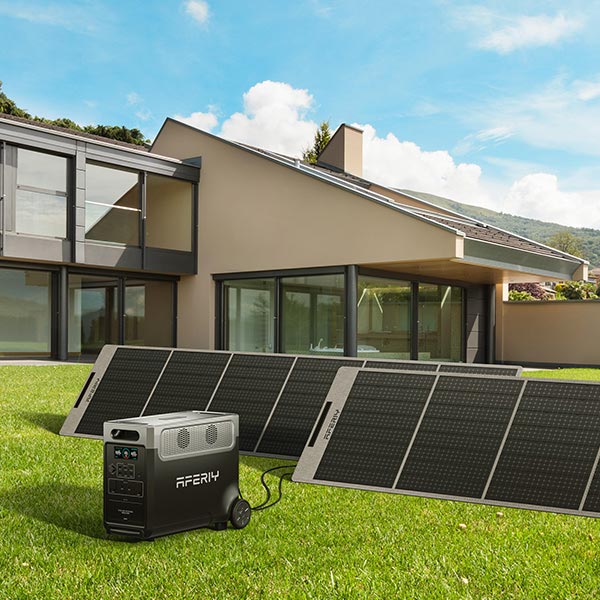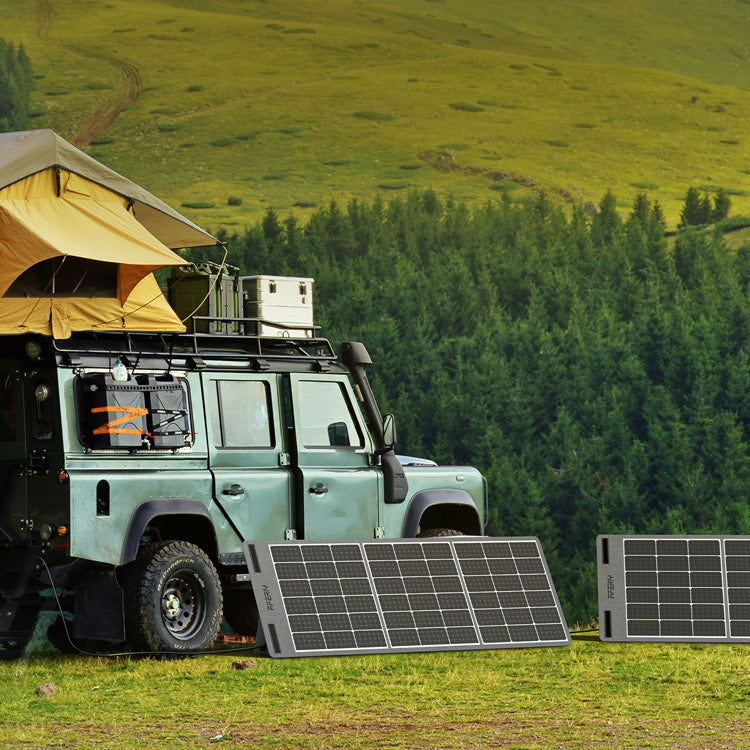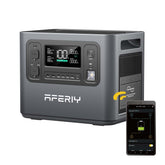How to Choose the Right Whole-Home Backup Power Solution
In an uncertain world, reliable backup power is crucial. Explore options to keep your home running when the grid goes down.
Briefly introduce portable generators, standby generators, and solar power systems as potential solutions.
Assessing Your Power Needs
Identify Crucial Appliances: When assessing your power needs, prioritize appliances like refrigerators, freezers, medical equipment, and communication devices. These are essential for safety, comfort, and maintaining your daily routine during power outages.
Calculate Power Requirements: To calculate the wattage requirements, make a list of appliances you want to power simultaneously. Multiply each appliance's wattage by the number of hours you expect to use it. Summing up these values will give you an estimate of your total power demand.
Understanding Different Backup Solutions

Portable Generators
-
Pros and Cons: Portability allows you to use it where needed, but they are limited in power output. Highlight their convenience for short-term emergencies and outdoor activities.
-
Factors to Consider: Depending on your power needs, choose a generator that provides enough wattage to cover your essential appliances. Look for fuel efficiency and noise levels, especially if you plan to use it in residential areas.
B. Standby Generators
-
Pros and Cons: Standby generators automatically kick in during an outage, providing seamless power. However, they require professional installation due to their complexity.
-
Factors to Consider: Decide on the generator's capacity based on your wattage requirements. Consider features like automatic transfer switches that ensure a smooth transition from grid power to backup power.
C. Solar Power Systems
-
Pros and Cons: Emphasize the environmentally friendly nature of solar power, but note its dependency on sunlight. Discuss the potential for long-term savings by generating your own electricity.
- Factors to Consider: Evaluate your home's solar potential based on factors like location, roof orientation, and shading. Consider battery storage options to store excess solar energy for nighttime use.
Considering the Fuel Source
Exploring Fuel Options: Mention the availability of different fuel sources. Gasoline is common but requires proper storage and rotation. Propane offers convenience and cleaner burning, while natural gas is reliable if you have a connection.
Availability and Cost: Highlight the importance of fuel availability during emergencies. Discuss the ongoing cost of fuel and potential price fluctuations.
Evaluating Installation and Maintenance
Installation Complexity: Explain that portable generators are relatively simple to set up but might require manual operation. Standby generators need professional installation due to their connection to your home's electrical system. Solar power systems require professional installation as well, ensuring proper wiring and connection to the grid.
Maintenance Tasks: Detail the routine maintenance needed for each option. Mention that portable generators and standby generators need periodic checks and oil changes. Solar power systems require minimal maintenance, mainly involving cleaning the solar panels to ensure optimal efficiency.
Budget Considerations
-
Upfront Costs: Discuss the initial investment required for each solution. Portable generators are usually the most affordable upfront, while standby generators and solar power systems involve higher initial costs.
- Long-Term Costs: Explain how ongoing fuel costs for generators can accumulate over time. Highlight that solar power systems have minimal ongoing costs since they rely on sunlight, making them a cost-effective option in the long run.
Examining Noise Levels and Environmental Impact

-
Noise Levels: Compare noise levels among different options. Portable generators can be noisy, while standby generators are quieter due to their enclosure. Solar power systems are silent, making them ideal for both residential areas and environmentally conscious users.
- Environmental Impact: Stress the environmental benefits of solar power systems, as they produce clean energy without emitting greenhouse gases. This can reduce your carbon footprint and contribute to a greener future.
Considering Reliability and Warranty
-
Brand and Model Reliability: Emphasize the importance of selecting reliable brands and models known for their performance during outages. Read user reviews and seek recommendations from professionals.
- Warranty Coverage: Discuss the significance of a comprehensive warranty, as it provides assurance that you're protected against potential malfunctions or defects.
Consulting with Professionals

-
Seek Expert Advice: Emphasize the value of seeking advice from professionals who can assess your specific needs and recommend the best solution for your home.
- Choosing the Right Contractor: Stress the need to choose a reputable and experienced contractor for proper installation. Research their credentials, reviews, and previous projects before making a decision.
Wrap Up
In a world where power outages can disrupt daily life and pose risks to safety, choosing the right whole-home backup power solution is paramount. As we've explored, various options exist to cater to different needs, preferences, and budgets.
By assessing your power needs, considering fuel sources, evaluating installation and maintenance requirements, and examining factors like noise levels and environmental impact, you can make an informed decision that ensures your home remains powered and secure.
Remember, the key to making the right choice is understanding your priorities. If convenience and short-term backup are your focus, a portable generator might be the answer. If seamless automatic power transfer is essential, a standby generator could be ideal. For environmentally conscious homeowners seeking long-term savings, a solar power system may be the way to go.
While budget considerations are crucial, also factor in the long-term benefits. Investing in a reliable backup power solution now can save you from inconvenience, potential losses, and even life-threatening situations during power outages.
Ultimately, the goal is to power your home efficiently, safely, and sustainably. Regardless of the option you choose, a whole-home backup power solution offers peace of mind, ensuring that your family's well-being and comfort are preserved in times of uncertainty.
So, take the time to assess your needs, weigh the pros and cons, consult professionals, and make the right choice for your home – because being prepared today means a brighter and more secure tomorrow.











Leave a comment
Please note, comments need to be approved before they are published.